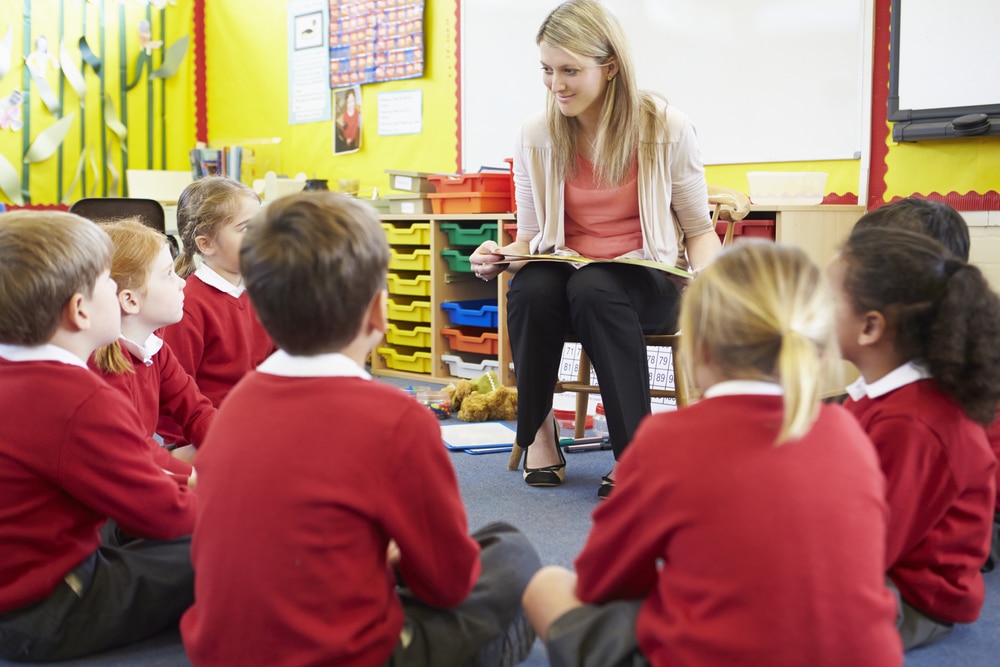Today is World Teachers’ Day, an annual celebration of those who dedicate their lives to the education of our children. Teachers’ Day exists to “acknowledge, evaluate and enhance the instructors of the world” and to give a chance to consider the issues identified with educators and the teaching process in general.
In the current climate and after a prolonged period of homeschooling, parents more than ever realise how indebted they are to the work that teachers do – work that extends far beyond education as teachers play a vital role in the social, emotional, intellectual, physical and moral development of our children.
Studies have also shown how teachers play a key role in helping students feel they ‘belong’ at school. And when students feel they’re part of a class, they will more actively engage in learning and non-learning activities and .
Teachers also play a critical role in the development of students’ creativity. Their own creativity is transferred to the students in their class, who are then more likely to respond in a creative manner and thus develop their own creativity.
In effect, teachers play an essential role in fostering who we are.
With all that in mind, we thought it might be a good idea to take a look at what skills and abilities are needed to become a teacher, in particular a Primary School teacher. Maybe it’s a career you’re thinking of pursuing. If so, have you got what it takes?
Commitment
Primary teachers have a very special set of skills and abilities. First and foremost they are dedicated to the cause of education and committed to providing the highest standards of teaching. They are fuelled with a passion to inspire young minds and driven by a commitment to ensure that every child achieves their potential.
Communication
Of all the skills that a teacher must have, communication skills are particularly important. A huge part of teaching is communicating information and it plays a fundamental role in the daily life of a primary teacher. The quality of teaching depends, in part, on the quality of communication in the classroom, so it is essential that a teacher is able to ensure that they can communicate as effectively as possible.
Organisation
Teaching requires a high level of organisational skills in order to create, plan and successfully deliver lessons. Lesson plans must be meticulously laid out so as to ensure the proper development of the student across a school year and ensure that each child is ready to move onto the next year. Plus there is the setting and marking of homework and exams. A teacher also must take into consideration how best to organise their time outside of school to successfully deliver these in the best way. Also it is imperative that teachers keep track of children’s progress, which also requires good organisational skills.
Patience
Patience is a virtue – and particularly when it comes to teaching. Children learn at all different rates so a teacher must be prepared to accommodate and adapt so as to find the balance between going too fast and leaving someone behind and going too slow and holding up someone’s progress. Patience is also required when a teacher is faced with challenging behaviour, and needs to stay calm and not lose their temper.
Creativity
Creativity plays a vital role in keeping students interested and engaged. At primary school age, children’s minds are reaching out into the world and cannot be satisfied with just learning from books. Teachers need to be creative in order to stimulate children’s imaginations to be inventive and harness their curiosity and evolve their learning, Primary school teachers are constantly coming up with different ways to keep the class interested and maintain high attention levels, employing a range of diverse learning activities and methods.
Here are some Colleges of Education in Ireland:
- St. Patrick’s College, Drumcondra
- Mary Immaculate College, Limerick
- Froebel Department of Primary and Early Childhood Education at NUI Maynooth, Maynooth, Co. Kildare
- Colaiste Mhuire, Marino Institute of Education, Dublin
- Hibernia College, Dublin
- Church of Ireland College of Education, Dublin
To register as a primary level teacher a Bachelor of Education (BEd) degree recognised by the Teaching Council is required or a minimum of a level 8 degree plus a Postgraduate Diploma in Education (Primary).
Applicants must satisfy the Irish Language requirement (Leaving Certificate Higher C3 minimum or equivalent such as NUI Maynooth’s Dioplóma sa Ghaeilge) and a high standard of fluency is required in the Oral Irish test which is part of the interview process.
Interested in education? Check out our list of hundreds of courses here












Comments